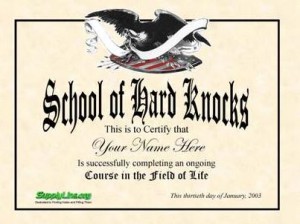After thanking the Philippians for their generosity, Paul explains that money isn’t his primary concern. He’s grateful for their gift but Paul finds peace and contentment with or without financial support. His gratitude is  not based on their provision of something for him that he couldn’t have done without. He is confident that God will meet his needs all along the way. He doesn’t stress out or fret about his physical needs. He says in Philippians 4:11, “Not that I am speaking of being in need, for I have learned in whatever situation I am to be content.” He had learned that his life was more than what he ate or wore or where he lived.
not based on their provision of something for him that he couldn’t have done without. He is confident that God will meet his needs all along the way. He doesn’t stress out or fret about his physical needs. He says in Philippians 4:11, “Not that I am speaking of being in need, for I have learned in whatever situation I am to be content.” He had learned that his life was more than what he ate or wore or where he lived.
I think of all the specifics in my life today; I need windows replaced because of the hail storm back in June. But, I’ll be content with or without them? I’m still wrestling with a broken arm that just doesn’t want to heal. But, I’ll be content even if it doesn’t heal? There are numerous other little concerns in my life and I’m sure you can make a list of your own. I have to admit that I’m not quit as spiritual as Paul. I still find myself wrestling with what I want and what I feel I “need.” Paul is primarily concerned about spiritual things. I’m still wrestling with my fleshly desires. I take some encouragement that Paul’s maturity with regards to his circumstances is something that wasn’t natural to him any more than it is natural to me and you. It’s something that comes with experience.
Notice in the verse that says “I have learned…” It didn’t come natural. He’s been a believer for over 30 years after being radically converted on the road to Damascus. He’s been through much pain and suffering as he embarked on three previous missionary journeys. He’s been beaten. He’s been stoned and left for dead. He’s been shipwrecked and imprisoned already for several years in Caesarea as well as Rome. It took a lot of trials to teach Paul contentment. Richison observes, “Contentment is not something that comes naturally. In his early years he grew up in the lap of luxury. At that time he had not learned contentment. At this point in his life he is needy; yet he is content. ‘Contentment’ is not automatic. Paul ‘learned’ contentment in the School of Hard Knocks. Courses in that school are difficult. We think university is tough. It is not nearly as difficult as God’s Graduate School. Can we say with the Psalmist, ‘It is good for me that I have been afflicted (119:71)?”